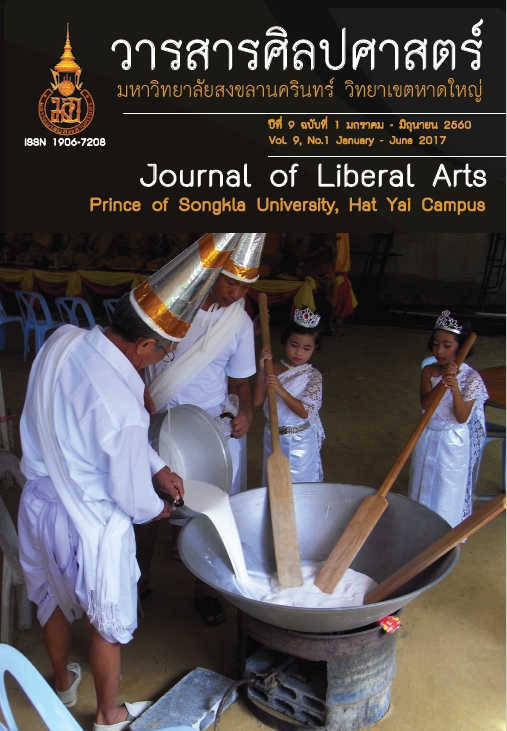The place-based curriculum development for enhancing students’ sense of community and belonging in a rural primary school
Keywords:
Curriculum development, place-based education, sense of community and belonging, school-community partnershipAbstract
The place-based curriculum development for enhancing students’ sense of community and belonging in a rural primary school aimed at 1) examining the fundamental data of Huadong community,
2) developing a curriculum, and 3) investigating the outcomes of curriculum implementation. The procedures were undertaken in three main steps: 1) examining the fundamental data of Huadong community to define the curriculum framework, 2) developing the curriculum, and 3) investigating the outcomes of curriculum implementation. Research instruments for collecting qualitative and quantitative data were:
1) a semi-structured interview form, a focus group discussion form, a local community contents collecting form, a student investigation form, and field notes, and 2) a needs for local contents survey, a learning achievement test and a learning satisfaction assessment form.
The results of this research included the fundamental data of the community consisting of local community contents which reflected the values and identities of community contexts including knowledge, wisdom, the existing way of life, local resources and cultural values. The place-based curriculum represented the ultimate goals of education that meaningfully connected local knowledge and modern knowledge together in order to empower the students and community in a sustainable way. The curriculum comprised six components: vision, goals, contents structure, learning management guidelines, learning materials and resources, and evaluation and assessment guidelines. The learning outcomes of the curriculum revealed that student learning achievement after using the curriculum was higher at a significant level of .05. Teachers, students and knowledgeable community people were satisfied with the curriculum at a high level. Students’ behavior during arranging learning activities, doing group works, conducting projects and presenting class works were highly satisfactory and students’ sense of community and belonging were also highly satisfactory after using the curriculum.
Downloads
Published
How to Cite
Issue
Section
License
Copyright (c) 2017 วารสารศิลปศาสตร์ มหาวิทยาลัยสงขลานครินทร์ วิทยาเขตหาดใหญ่ (Journal of Liberal Arts Prince of Songkla University Hat Yai)

This work is licensed under a Creative Commons Attribution-NonCommercial-NoDerivatives 4.0 International License.
The authors retain the copyright to their article but the Journal of Liberal Arts, Prince of Songkla University reserves the exclusive rights to first publication.






